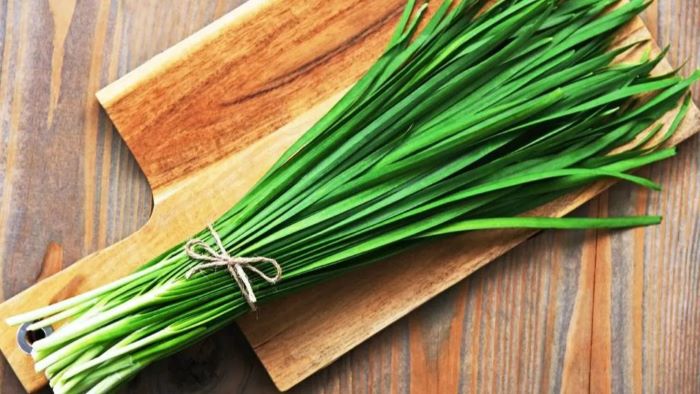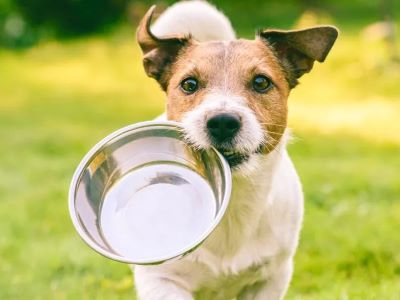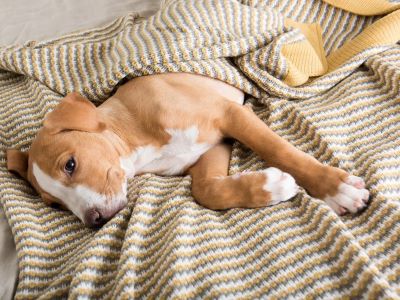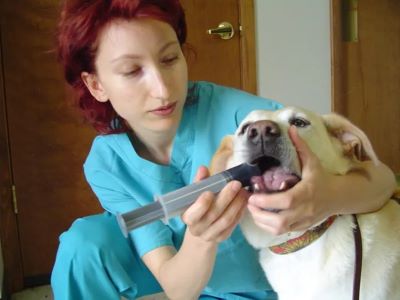What to give your dog and what not to is the constant dilemma of paw parents. There are certain ingredients that are toxic for dogs and can hamper their health badly. Chives are one such ingredient that enhances your daily food taste and is beneficial for us. But is it good for dogs too and can dogs eat it?
Through our blog, “Can dogs eat chives?” we will take you through every aspect. We will provide you with well-equipped information on whether chives are good for dogs or not, if not what to do and how to prevent your dog from eating it.

What Are Chives?
Chives are herbs belonging to the Allium family[1]. The allium family also includes onion, garlic and leeks they have similar sour, crisp and tangy taste and smell. Chives are used to enhance the taste of our daily food and other dishes.
Chives are easy to grow and have beautiful purple flowers. The flowers of chives can be edible too. Chives are long and thin with green stems and these stems are cut and garnished on various dishes.
Can Dogs Eat Chives?

No, dogs cannot eat chives. Chives is toxic for dogs and consuming it can lead to a serious health issue in your dog. Chives contain a compound called organosulfides, this compound can damage the red blood cells of dogs leading to anaemia. This compound also affects the oxygen level in the dog’s body.
Anaemia can cause weakness, rapid heartbeat, pale gums and in the worst case organ failure and death in dogs. Chives also lead to gastrointestinal diseases like vomiting, nausea and diarrhoea in dogs. Due to these gastrointestinal issues dogs suffer from dehydration.
Due to this toxicity avoid feeding your dog chives in any form, and if your dog has consumed it then consult a vet immediately.
As mentioned by Veronica Higgs, DVM in petmd, "Green onions (Allium fistulosum) and chives (Allium schoenoprasum) are both members of the Allium genus and are also toxic to dogs. Dogs should not eat any form of onion—red, white, yellow, sweet, green onions, chives, leeks, or even garlic—as these are all members of the Allium genus."
What Are the Symptoms of Chive Poisoning in Dogs?
Here are the symptoms of chive poisoning in dogs:

- Vomiting, diarrhoea and nausea: Due to organosulfides compound present in chives gastrointestinal issues occur in your dog. These issues can further cause dehydration, imbalance and shock.
- Drooling and abdominal pain: This happens due to the smell and strong flavour of chives. Your dog may produce excessive saliva, feel discomfort and experience drooling and abdominal pain.
- Lethargy, loss of appetite and weakness: chives causes anaemia in dog which results in blood not carrying oxygen to the body. Due to this condition, the dog feels tired, and weak and loses its appetite.
- Rapid heartbeat: Due to not receiving enough oxygen the heart and lungs of the dog are affected. This lack of oxygen results in increased heartbeat and uneven breathing issues in dogs. Apart from this if chive poisoning is not treated in dogs it can lead to hypoxia and damage the organs permanently.
- Pale gums: If your dog is suffering from chive poisoning then he is likely to have pale gums. Pale gums are the result of improper blood circulation.
- Collapse: Due to not sudden drop in blood pressure your dog may even collapse.
What Should You Do if Your Dog Eats Chives?
Here’s what you can do if your dog has eaten chives:

- If your dog has consumed chives then consult a vet immediately. Chives being toxic to dogs can lead to chives poisoning in dogs and to treat it medical guidance is necessary.
- Contact a pet poison helpline and provide them with all the required information. Inform them about the quantity of chive consumed by your dog and the symptoms you have observed. They will further help you and guide you regarding the further procedure.
- Try inducing vomiting in your dog and administering activated charcoal. By doing this the chives can be removed from your dog’s stomach and the threat can be reduced.
- Provide your dog with intravenous fluid and electrolytes. This helps prevent dehydration caused due to gastrointestinal issues.
How Can You Prevent Chive Poisoning in Dogs?
Here are a few steps you can follow to prevent chive poisoning in dogs:

- Keeps the chives out of your dog’s reach. Store the chives in a closed container in such a way that your dog will have no access to them. Do not dispose of the chives openly, throw them in the trash or compost.
- Avoid feeding your dog food containing chives or any other Allium ingredient.
- While feeding your dog any human food check for the ingredients carefully and avoid the ones containing chives.
- Build the fence around the chive plant to prevent your dog from eating it.
- Train your dog, training helps in handling your dog. By training you can command your dog to not eat particular things and they do tend to follow it mostly.
- If your dog is adamant and not listening to you and going near the chives repeatedly try providing distractions. Distractions like toys and treats will divert the mind of your dog from chives.
FAQs
Can dogs eat chives?
No, dogs cannot eat chives. Chives are toxic for dogs and can lead to certain health issues. Chives can affect a dog’s red blood cells which can lead to anemia. It also causes gastrointestinal issues, nausea, vomiting, abdominal pain and diarrhoea in dogs. Chives in all forms are toxic for your dog, so avoid feeding it.
What to do if dog eats chives?
If your dog has consumed chives then you must consult a vet immediately and seek medical guidance. Chives are toxic for dogs and your dog eating them can lead to chives poisoning in your dog. In this case, you should not wait or treat your dog at home but instead should take him to the vet.
How much chives are poisonous to dogs?
The amount of chives poisonous to dogs depends on their size, weight and breed. It also depends on the type or species of chives consumed. According to experts and the general rule of thumb chive poisoning can happen if 0.5% or more chive of a dog’s weight is ingested.
Are chive flowers poisonous to dogs?
Yes, chive flowers are too toxic for your dog. Chive flowers consist of a compound called saponin. Saponin can lead to vomiting, diarrhoea and if consumed in excessive amounts then even death. The chive flowers also like chives affect the dog’s red blood cells and other organs.
How is chive poisoning in dogs treated?
You cannot treat chive poisoning without the proper medical knowledge and guidance. A vet may be able to treat it better, to start with your vet may try to induce vomiting in a dog, giving intravenous fluids, and electrolytes to prevent dehydration. In extreme cases, it may require blood transfusions to maintain the red blood cell count and oxygen level.
Conclusion
Chives belong to the Allium family the same to which onion belongs. Onions are not good for dogs and can affect their health resulting in serious issues. Similarly, chives too are toxic for dogs, and should not be given in small quantities.
We hope that through our blog, “Can dogs eat chives?” we have successfully made you aware. Chives in all their forms are hazardous to your dog. If your dog consumes chives accidentally then consult a vet immediately and seek medical advice and treatment.
Do not try to treat your dog yourself and waste time, as the chive poisoning can even lead to death if not treated properly.
Reference:
- LibGuides: Plants Toxic to Animals: A-C. (n.d.).



